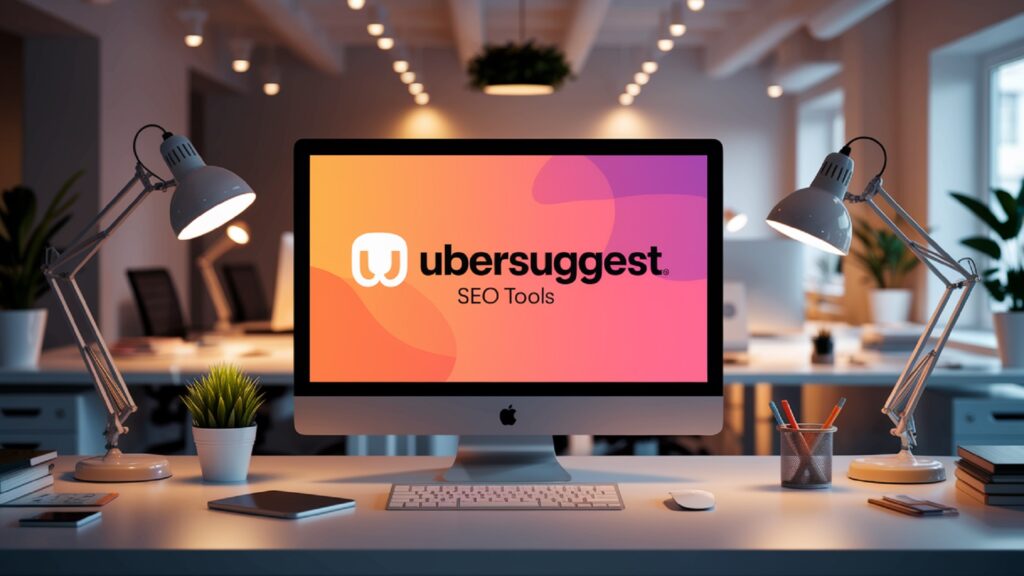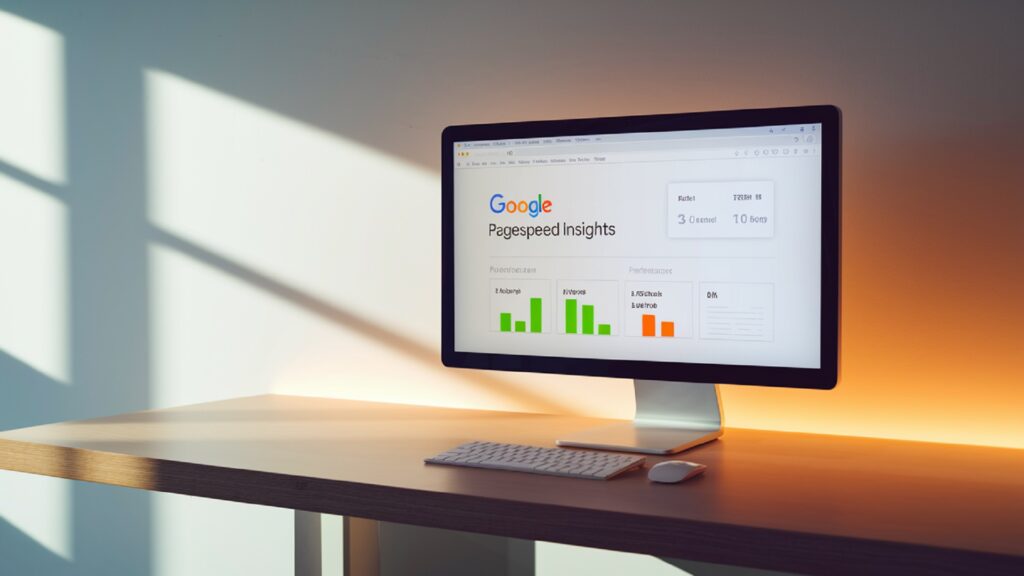Introduction of 15 Free SEO Tools You Should Be Using
15 Free SEO Tools You Should Be Using is more than just a list — it’s your roadmap to mastering SEO without spending a cent. These tools empower marketers, content creators, and small-business owners to analyze, optimize, and grow their online presence free of charge. Over the coming sectons, we’ll explore each tool in detail, explain why it matters, and show you how to integrte them into your ongoing SEO strategy.
These tools cover keyword research, on‑page optimization, technical auditing, link analysis, performance metrics, and even content-grade improvemnts. How to use them together effectively, you’ll build a comprehensive toolkit tailored to your goals.

What are 15 Free SEO Tools You Should Be Using?
15 Free SEO Tools You Should Be Using refers to a curated collection of no-cost applications—ranging from those offered by Google itslf to third-party utilities—that support virtually every aspect of modern SEO.
These tools serve niches like:
- Keyword discovery and planning
- Rank and SERP analysis
- Technical site audits and health checks
- Content optimization and readability improvemnts
- Backlink tracking and domain authority insight
- Site performance monitoring and speed enhancement
They are ideal for budget-conscious teams and solo creators. Even enterpriss can benefit by supplementing paid systems. While some offer limitations in their free tiers, they often rival premium solutions when combined.
Benefits of 15 Free SEO Tools You Should Be Using
Moreover, using these tools offers significant advantges:
- Zero cost, yet high impact
- Low barrier to entry for beginners
- Data‑driven insights to guide decisions
- Scalable usage as your site grows
- Instant feedback on optimizations and errors
These tools allow you to pivot quickly—experimnt with keywords, fix technical issues, and refine content without delays. They also integrate with paid tools or platforms if you upgrade later.
Also Visit This ( Best Free Online Courses for Freelancers )
Tools Breakdown: Exploring Each Tool
1. Google Search Console
This essential platform lets you see how Google indexes your site, which search queries return your pages, and which pages need fixing. The Performance report shows your top queries, impressins, click-through rate (CTR), and average positions.
2. Google Analytics
A comprehensive traffic and behavior analysis tool. You can track pages viewed, conversion funnels, bounce rates, and user demographics. Linking Analytics with Search Console deepns your SEO insight.
3. Google Keyword Planner
Perfect for discovering keyword ideas and search volume estimtes. While designd for ads, it remains invaluable for organic keyword research and trend comparison.
4. Ubersuggest
Offers keyword suggestions, domain overview, backlink data, and basic site audit features. A helpful starting point for content ideation and competitive analysis.

5. AnswerThePublic
Visualizes user questions and searches related to a keyword. This helps you uncover long-tail topics and content opportunities based on real search behavior.
Let’s pause here—these first five tools form a solid foundtion: tracking site health, understanding how people find your site, and gathering data-driven keyword ideas.
How to Use 15 Free SEO Tools You Should Be Using Effectively
To leverage 15 Free SEO Tools You Should Be Using properly, follow this structured approach:
- Start with Google Search Console to identify pages with errors or poor performance.
- Use Google Analytics to understand user behavir and traffic trends.
- Run keyword queries in Keyword Planner and Ubersuggest to gather volume, competition, and new topic ideas.
- Visualize question-based queries via AnswerThePublic to shape FAQ-style content or long-form articles.
- Run audits with Screaming Frog or similar tools to spot broken links, missing meta tags, duplicate content, and slow page elements.
By following these steps weekly or monthy, you’ll maintain continuous improvement across your site’s SEO.
Common Mistakes People Make
Avoid these pitfalls:
- Over‑tooling: Trying every tool at once can confuse you with conflicting data.
- Ignoring update frequency: Data must be fresh—don’t rely on old audits.
- Using only automated suggestions: Tools can guide, but human judgement is essential.
- Skipping tool limitations: Free tiers may restrict data depth—accept and supplement.
- Neglecting tool integration: Use tools together (e.g., link Google Console to Analytics) for richer insights.
Tools Breakdown: Exploring Each Tool
6. Yoast SEO
Yoast SEO is a WordPress plugin that helps you optimize your content directly as you write. It checks:
- Keyword usage
- Meta descriptions and titles
- Readability
- Internal linking
- Schema markup
It uses a traffic light system, green means good, orange means needs improvment, and red means poor. While the premium version adds more features, the free version is powerfl enough for most content creators.
7. Ahrefs Webmaster Tools
Ahrefs’ free tool lets you scan your website for over 100 technical SEO issues. You can also analyze backlinks and keyword rankings. Unlike their full paid platform, this version is limitd but still incredibly helpful for:
- Spotting broken pages
- Seeing which domains link to you
- Tracking URL-level SEO issues
You’ll need to verify your site ownership to access the dashboard, similar to how you’d verify for Google Search Console.
8. Screaming Frog SEO Spider
This desktop application (for Windows, macOS, and Linux) crawls your website the way search engines do. In its free version, it allows you to analyze up to 500 URLs, including:
- Broken links (404 errors)
- Redirects
- Duplicate content
- Missing meta descriptions
- Image optimization opportunities
It’s widely usd by SEO pros for condcting deep audits. Combine it with Google’s tools for even more powerful insights.
9. Google PageSpeed Insights
Page speed is a ranking factor—especially for mobile. This free tool analyzes your page’s loading time and gives actionable suggestions. It splits performance into:
- Core Web Vitals (LCP, FID, CLS)
- Opportunities to improve (e.g., image compression, script loading)
- Diagnostics for developers
Aim for a score of 90+ for optimal results, especially on mobile.

10. GTmetrix
Another site speed analyzer, GTmetrix, adds to wht PageSped Insights offers. It gives you performance scores, waterfall analysis, and structured data. You can test from different global regions and devices, which makes it especially helpful for international or mobile-first websites.
Tools Breakdown: Exploring Each Tool
11. Moz Link Explorer
Moz offers a powerful backlink analysis tool with a limited number of free queris per month. Use it to:
- Check domain authority
- Find your top-performing inbound links
- Analyze competitors’ backlinks
Backlink data is crucial in off-page SEO. If you’re trying to build a stronger link profile. This tol is a relible place to start.
12. SERP Simulator
Before you hit publish, it’s essentil to prview how your meta title and description will appear in search results. SERP Simulator helps you visualize your snippet in real-time. It checks:
- Title length
- Meta description length
- Pixel width (not just character count)
This ensures you’re not getting cut off in Google SERPs.
13. SEO Minion
A Chrome extension that helps you perform on-page analysis, highlight broken links, check hreflang tags, and simulate multi-location SERPs. It’s ideal for quick checks without logging into separte platfrms.
You can use it to:
- Highlight all links (internal and external)
- Analyze meta tags and structure
- Check if images have proper alt attributes
This is great for smaller or non-technical site owners.
14. Small SEO Tools: Plagiarism Checker
Duplicate content can harm your site’s rankings. Small SEO Tools’ Plagiarism Checker helps identify copied text, whether intentional or not. Paste your contnt and scan for:
- Similar matches across the web
- Reused or spun articles
- Paraphrased passages
While not perfect, it’s a good content hygiene step before publishing.

15. Keyword Surfer
This browser extension shows keywrd volumes directly in Google search results. It also offers:
- Related keyword suggestons
- SERP visibility metrics
- Word count data of top-ranking pages
It’s a great companion during keyword research or when brainstrming content outlines.
Building a Strategy with 15 Free SEO Tools You Should Be Using
Now that you know what each tool does, how do you use them together?
Here’s a full-cycle strategy using these tools:
1: Research & Planning
- Use Keyword Planner, Ubersuggest, and AnswerThePublic to find keywords and content angles.
- Use Keyword Surfer to validate interest and see competitrs’ page data.
- Analyze competitors with Moz Link Explorer or Ahrefs Webmaster Tools.
2: Content Creation
- Write SEO-focused content using Yoast SEO in WordPress.
- Check for originality with Small SEO Tools Plagiarism Checker.
- Use SERP Simulator to perfect your title and meta descripton.
3: Technical Optimization
- Crawl your site using Screaming Frog SEO Spider.
- Identify broken links or metadata issues.
- Use Google Search Console to monitr site health and indxing.
- Check speed with GTmetrix and PageSpeed Insights.

4: Monitoring & Improvements
- Track rankings, CTRs, and indexing with Google Search Console.
- Review traffic pattrns with Google Analytics.
- Keep your backlink profile strong with Ahrefs Webmaster Tools and Moz Link Explorer.
- Regularly scan pages with SEO Minion for quick updats.
This cycle ensures you address all areas: content, technicl, and off-page.
Real-World Scenarios: When to Use These Tools
Let’s walk through some practical SEO situations and the free tools that solve them.
Scenario 1: Low Traffic Despite Quality Content
Tools to Use:
- Google Analytics (to measure bounce rate, time on page)
- Google Search Console (to check keywrd impressions and clicks)
- Screaming Frog (to detect any broken elements or crawl issues)
Scenario 2: New Page Not Indexing
Tools to Use:
- Google Search Console (submit the URL)
- PageSpeed Insights (check for render-blocking resourcs)
- Yoast SEO (ensure the page is set to index)
Scenario 3: Competitor Outranking You for a Focus Keyword
Tools to Use:
- Ubersuggest or Moz Link Explorer (analyze their backlinks)
- AnswerThePublic (explore question-based variations)
- Keyword Surfer (check their content structure)

FAQs About 15 Free SEO Tools You Should Be Using
Are free tools secure and trustworthy?
Yes, especially those from reputable providers like Google, Moz, and Ahrefs. Always download tools from their official websites or verified marketplaces.
Do I need technical knowledge to use these tools?
Not necessarily. Tools like Yoast SEO and Google Search Console are user-friendly. More technical tools like Screaming Frog may require learning, but many offer documentation and video guides.
What’s the best free tool for local SEO?
Google Business Profile (formerly Google My Business) is essential. While not on the original list, it’s a powerful free tool for local visibility, nd complements tools like Search Console and PageSpeed Insights.
How do these tools help with mobile SEO?
Mobile performance can be tested with Google PageSpeed Insights and GTmetrix. Search Console also has a Mobile Usability report.
Author Remarks
If you want to improve your website’s visibility, drive more traffic, and increase conversins—all without spending a dime—then these 15 Free SEO Tools You Should Be Using offer everything you need to get started.
We’ve explored how each tool plays a specific role in your SEO strategy—from keyword discovery and on-page optimization to technical audits and performance tracking. You’re analyzing backlinks with Moz Link Explorer, optimizing your content using Yoast SEO, or fixing page speed issues with Google PageSpeed Insights, these tools empower you to take control of your SEO, no matter your budget or experience level.
Integrating these tools into your daily or weekly workflow, yu’l develop a strong foundation for sustainable SEO success. It’s not just about using tools—it’s about using them strategically and consistently.
To recap:
- Use Google’s suite (Search Console, Analytics, Keyword Planner) as your base.
- Add Ubersuggest, Screaming Frog, and Yoast for deepr audits and on-page work.
- Monitor speed and structure with GTmetrx and SEO Minion.
- Strengthen your content and backlinks with Moz, Ahrefs, and AnswerThePublic.
SEO doesn’t have to be expensive or overwhelming. With this curated list of 15 Free SEO Tools You Should Be Using. The powr to optimize your site, outperform competitrs, and attract your ideal audience—starting tody.

6 thoughts on “15 Free SEO Tools You Should Be Using”